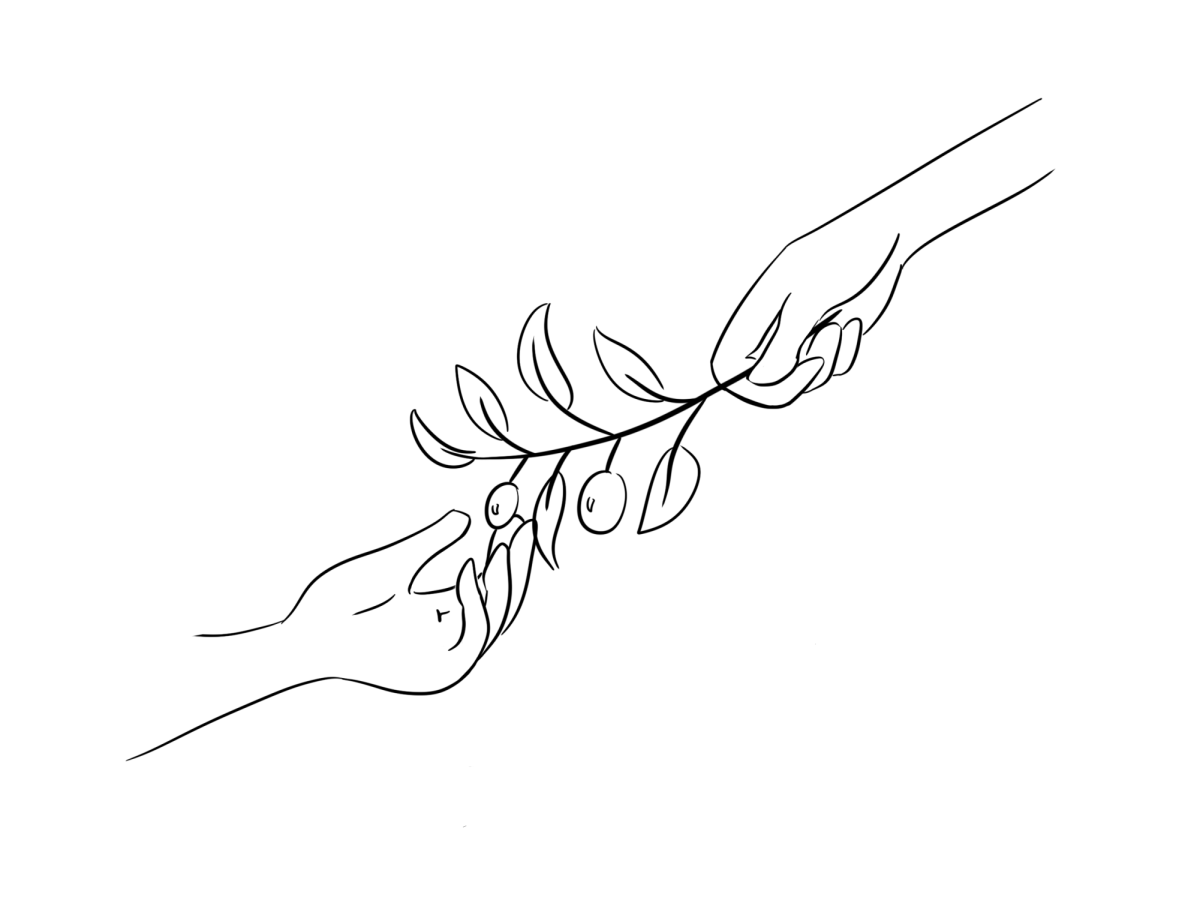The night of Charlie Kirk’s assassination, each tap of our Instagram feeds brought a new opinion. Messages reading “Rest in Peace” were interspersed with condemnations of Kirk’s political beliefs and, in some cases, jokes about his passing.
When SHP gathered for a communal assembly six days later, Head of Schools Mr. Richard Dioli took to the stage with an envelope and a message for the community. In his speech, Dioli condemned insensitive reactions to Charlie Kirk’s assassination on social media, allegedly from students, and noted that someone had left the envelope in his office that morning. He brandished it and said it contained a collection of printed-out screenshots of social media posts discussing Kirk’s death in ways contradictory to the values of a Sacred Heart education.
It is our opinion that we are called as Sacred Heart students to put empathy at the forefront of our response to this situation, beginning with trying to understand why people may differ in their reactions to Kirk’s death.
Many in our community have complicated impressions of Kirk. Some believe he perpetuated harmful rhetoric and discriminatory policies. We understand that it can be difficult to reconcile the tragedy of Kirk’s brutal death with critical opinions about his legacy. It’s absolutely okay, and even natural, to have a guttural reaction to his assination and to struggle with immediate thoughts that may not be appropriate for the situation. However, it matters how we respond, and that when we respond, it’s in a way that’s dictated by empathy and a fundamental respect for human dignity.
To do so, we must ask a broader question: how should you respond when you feel hated or discriminated against? Expressing empathy does not mean forgoing your beliefs; on the contrary, we encourage you to preserve them. Critical beliefs can—and should—coexist with a respect for the shared, inherent dignity of every human person.
Extending empathy means showing respect first, and to continue, even if your actions aren’t reciprocated. If everyone waits for someone else to extend the olive branch first, we will never be able to have the conversations necessary for progress. We cannot let that happen at SHP.
For the people shocked by distasteful reactions to Kirk’s death, how do you respond with recognition and respect for others’ complicated feelings towards him? For those hurt by more inflammatory parts of Kirk’s rhetoric, how do you respond to his death with appropriate sympathy and respect? We call students on all sides to put themselves in each others’ shoes, and prevent this moment of turmoil from dividing us further.
We have a range of opinions on Kirk’s legacy, but are united in the belief that Kirk’s death must be a wake-up call. Violence against any individual on the basis of their political ideology is disgusting, and it happened because our country—including the SHP community—is divided along partisan lines.
The ultimate form of hate was the shooting of Kirk itself, and as such, we need the leaders of our country to respond to it with empathy as well. Not to silence opposition, to fire people exercising their right to free speech, or to declare a political war, but to take this as a call to come together as a nation.
Kirk’s murder is situated within a broader wave of political violence. From the assassination attempt on President Trump to the death of the Minnesota House Speaker Mellissa Emerita, this cannot be allowed to continue.
Sacred Heart is a microcosm of our world. Constructive dialogue must happen now so that when we are the leaders of tomorrow, we can fix these issues. We are called to empathy not just in the aftermath of tragedy. We are called to empathy always. Compassion should not be radical.


